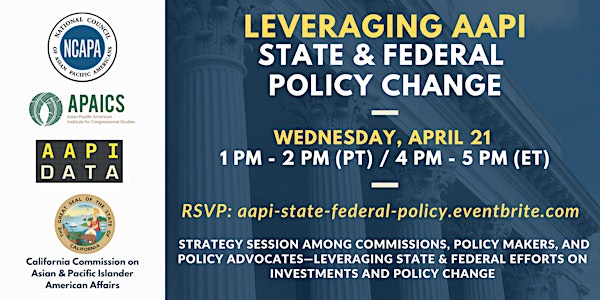
Leveraging AAPI State and Federal Policy Change
AAPI Strategy Convening to Connect and Leverage State and Federal Policy Change
By Center for Social Innovation, UC Riverside
Date and time
Wednesday, April 21, 2021 · 1 - 2pm PDT
Location
Online
About this event
Organized by
The Center for Social Innovation—which is the result of two years of planning, community engagement, and foundation dialogue—aims to provide a credible research voice that spurs civic leadership and policy innovation. We also aim to integrate researchers, community organizations, and civic stakeholders in collaborative projects and long-term partnerships that boost collective impact. Importantly, the Center seeks to shift away from a “problem” narrative to an “opportunity” narrative for marginalized communities and localities.